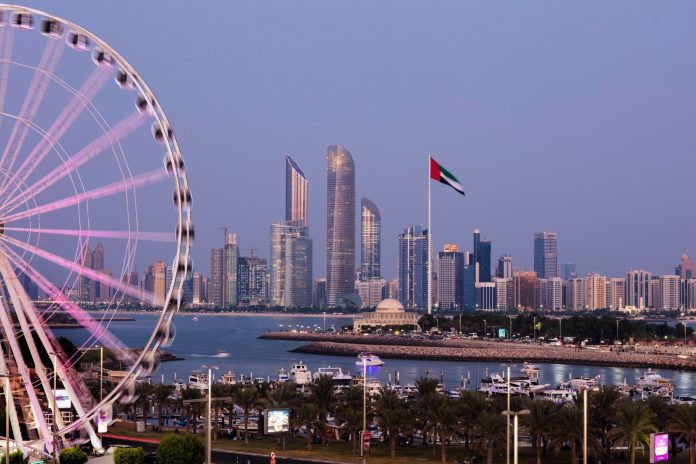
Total FDI balance in the country exceeds AED 630 billion with a growth of 13.7%
The foreign direct investment (FDI) inflows to the UAE recorded a 3.9% growth in 2021 compared to 2020 to reach nearly AED 76 billion (USD 20.7 billion). As a result, the total FDI balance in the country increased to reach nearly AED 630 billion (USD 171.6 billion) by the end of 2021, highlighting a 13.7% growth over 2020. Over the past ten years, FDI inflows into the country have grown by 116%, while the total balance of those investments during the same period grew by 113%.
H.E. Abdulla Bin Touq Al Marri, UAE Minister of Economy, said that this distinguished result is the country’s latest achievement under the vision and directives of its wise leadership based on the principles of proactivity and future foresight. He noted that it has proven the strength and flexibility of the UAE’s national economy and the attractiveness of its business and investment environment once again, highlighting the advantages it offers to the global investment community. These integrated and pioneering competitive advantages and incentives consolidate the UAE’s position as an economic and commercial capital both regionally and globally, making it a preferred and attractive destination for FDI and pioneering projects from various international markets, he said.
H.E added: “This result is a natural outcome of the pioneering measures and initiatives implemented by the UAE in the past phase to develop its economic sectors and significantly enhance its investment climate. These policies align with a new economic model that is more flexible and sustainable, with more openness to global markets, and are also in line with future economic trends and emerging technologies. The most prominent among them is the granting of 100% free and full foreign ownership of projects and investments in all economic sectors, with the exception of a limited number of activities with a strategic impact. Another notable initiative is the launch of the ‘Projects of the 50,’ which include several strategic and qualitative initiatives to attract pioneering projects and talents. We will continue our efforts in this direction during the next stage, following the UAE’s recent hosting of the Investopia summit that strengthened its position as a destination for future investments. It has set forth the goal to attract AED 550 billion worth foreign investments to the country by 2030, to eventually reach AED 1 trillion by 2051.”
The foreign investments received by the UAE are spread across all sectors and vital economic activities, such as traditional and renewable energy, oil and natural gas, financial sector, insurance activities, real estate, health, industry and agriculture. Various new economic sectors such as digital economy, technology, innovation, artificial intelligence, Internet of things and blockchain, innovative medical technologies, high-speed transportation, virtual and augmented reality, robotics and self-driving cars also attracted considerable FDI.
Meanwhile, the UAE’s outward FDI flows reached nearly AED 82.6 billion (AED 22.5 billion) in 2021, with an annual growth of 19.1%. They grew by 789% over the past ten years, which led to an increase in the UAE’s investments in foreign markets to reach nearly AED 830.5 billion (USD 226.3 billion) by the end of 2021, with a growth of 11.1% compared to the end of 2020.
The UAE’s investments have proven highly efficient in regional and international markets, and in various vital economic sectors, where they serve as qualitative and sustainable strategic investments. The UAE companies have been able to enhance the competitiveness of the national economy in a number of advanced global industries and services such as aviation, transportation and mining, in addition to the great progress they have made in the field of conventional and renewable energy. In addition, they also perform well in real estate and construction sectors, ICT, oil and natural gas, logistics, ports and infrastructure, tourism, hotels and entertainment sector, banking and agriculture.
H.E. Dr. Thani bin Ahmed Al Zeyoudi, Minister of State for Foreign Trade, underlined that the position occupied by the UAE in the global indicators for attracting and exporting FDI is not a coincidence, but rather the result of a clear vision adopted by our wise leadership to enhance the country’s position as a major hub on the global investment landscape. This is reflected in the UAE’s policies to develop FDI, as the country is keen to formulate strategies that enhance its leadership in attracting talent and qualitative investment. These efforts in turn support development plans based on innovation, knowledge, technology and the digital economy, in accordance with the principles and Projects of the 50 and the determinants of the UAE Centennial 2071.
H.E. added that the growth achieved by the country in attracting FDI reflects the confidence of the international community in its investment environment. He noted that it confirms the efficiency of the trade and investment openness policies pursued by the country, as the UAE now enjoys more opportunities to attract investments. This is especially true in light of its new legislation and the launch of the Projects of the 50, which are set to have a tangible impact in the long run on the flow and quality of foreign and domestic investments and the UAE’s overall economic growth. It will also enhance the growth of market movement, create new job opportunities, and develop skills and human cadres, H.E. said.
In terms of its ability to attract FDI, the UAE advanced by nine ranks in 2020 compared to 2019 and ranked 15th globally. At the same time, it advanced six positions globally in terms of outward FDI flows to rank first in the Arab world and 13 globally, according to UNCTAD’s World Investment Report 2021.
The UAE also ranked first in the Arab world and 15th globally in the Kearney’s FDI Confidence Index for the year 2021, advancing four places compared to the year 2020, thus outperforming a number of major global economies such as Singapore, Australia, Portugal, Denmark, Ireland, Brazil and Finland in the general ranking of the index.



































